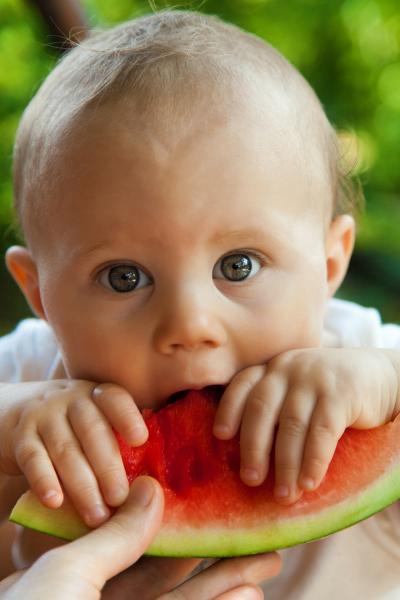When my wife and I found out she was pregnant with our first child, our thinking about food safety seemed to shift overnight. Fears that we once disregarded suddenly morphed into potential threats we had to assess for our son's sake. Previously, for example, it was easy for me to write articles explaining why parents should ignore “The Dirty Dozen” and quit worrying about pesticides. And my wife, a science teacher with little tolerance for scaremongering, was equally dismissive of such concerns.
But that was before we had skin in the game. For the first time ever, we had to answer a surprisingly difficult question: were we harming our unborn baby by eating food treated with chemicals linked to neurological damage, cancer, and a variety of other maladies? It was a brief moment of crisis.
To spoil the story, the answer we landed on was “no.” We continue to buy conventional produce and sleep without fear that we're slowly poisoning our son. But what's more important is that we eased our fear by applying a few basic science lessons and some common sense to our situation. Here are the key takeaways we reached on our way back to accepting that trace amounts of pesticides on food pose minimal risk to our baby, or to anyone else for that matter.
Pesticides are tightly regulated
Suppose you read the content put out by activist organizations like Environmental Working Group (EWG) or Consumer Reports, both of which, incidentally, have close relationships with the organic food industry. You may be tempted to believe that the EPA approves pesticides willy-willy. Nothing could be further from the truth. The pesticide registration process mandated by federal law is extensive, covering a broad spectrum of environmental and public health considerations, including, as the EPA states, “whether there is increased susceptibility to infants and children … from exposure to the pesticide.” Moreover, these conclusions are often later validated by independent studies.
This isn't to say regulators and scientists are infallible or that pesticides never pose a health risk. Rather, the point is that agencies like the EPA take food safety seriously and follow protocols, detailed in the agency's 21-chapter pesticide registration manual, designed to mitigate the harm these chemicals may cause in certain circumstances. The manual is no John Grisham novel, but its excruciating detail should comfort parents who may be concerned about pesticide safety.
Anti-pesticide activists are wrong – often
Environmental groups and health gurus churn out an unending stream of anti-pesticide propaganda. It ranges from high-profile scare campaigns like EWG's Dirty Dozen to slanted blog posts and slick documentaries, which sometimes include Nazi references (naturally) and are often uncritically amplified by the media.
This would all be very disturbing if it weren't mostly nonsense. Back in 2019, for instance, several activist groups sparked a media firestorm by warning that breakfast cereals contained trace amounts of the weedkiller, glyphosate, which they alleged “can cause cancer and hormone dysfunction.” Those are dubious claims on their own; the evidence to back them up is embarrassingly sparse. But beyond that, nobody bothered to mention that you’d have to eat 30 bowls of cheerios every day for more than a year to approach the EPA's limit for safe glyphosate exposure.
Something similar could be said of probably every kind of produce available in the grocery store, according to a recent study analyzing the USDA's annual pesticide data program. According to the study, a child weighing about 45 pounds would have to eat 5,291 servings of blueberries, 1,890 servings of peaches, and 7,240 servings of carrots to exceed “the experimental dose level at which no adverse effects are observed,” – the no observed adverse effect level (NOAEL). We could go on, but you get the idea. It's effectively impossible to eat enough food to suffer even the slightest harm from pesticide exposure.
Pesticides are dangerous? Compared to what?
One of my lingering fears as a father-to-be is that my wife will end up in a car wreck during her daily commute to work. More than 36,000 people were killed in traffic accidents in 2019 alone, so my concern isn't unwarranted. That said, the number of traffic-related fatalities per 100,000 licensed drivers has steadily declined since 1990 in the US, and paying bills necessitates going to work. A simple cost-benefit analysis suggests that earning a living is worth the diminishing risk of experiencing a fatal car accident.
Since millions of people make the same trade-off every day, how is it possible to justify concern about pesticide residues that couldn't harm you after roughly 10,950 bowls of cereal? As my wife and I ultimately determined, the fear is baseless.




